All Formats & Editions
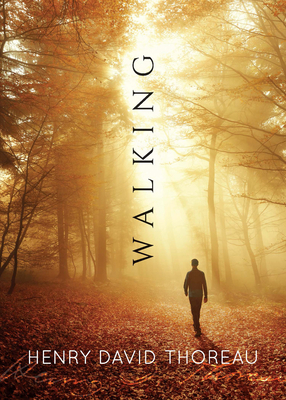
Walking
"For I believe that climate does thus react on man -- as there is something in the mountain air that feeds the spirit and inspires."
Henry David Thoreau's Walking began as a lecture in 1851 and ultimately appeared in The Atlantic Monthly in 1862, shortly after...
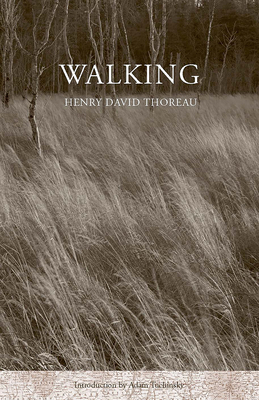
Walking
This summation of his life's work, published posthumously in 1862, became a seminal influence in the modern environmental movement and is no less relevant today than 150 years ago. "Above all, we cannot afford not to live in the present," he wrote. He extolled walking as a delightful...

Walking by Henry David Thoreau

Walking
"Walking , an essay written by Henry David Thoreau, has become one of the most important essays in the environmental movement. Thoreau neither rejected civilization nor fully embraced wilderness. Instead he sought a middle ground, the pastoral realm that integrates both nature...
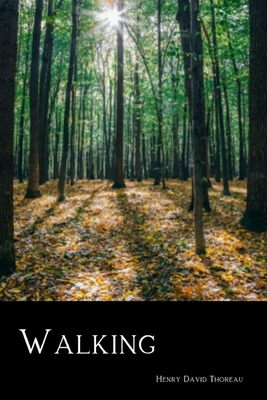
Walking (Annotated)
In Walking , Henry David Thoreau talks about the importance of nature to mankind, and how people cannot survive without nature, physically, mentally, and spiritually, yet we seem to be spending more and more time entrenched by society. For Thoreau walking is a self-reflective...

Walking
Originally given as part of a lecture in 1851, "Walking" was later published posthumously as an essay in the Atlantic Monthly in 1862.Now being a chief text in the environmental movement, Thoreau's "Walking" places man not separate from Nature and Wildness but within it and lyrically...
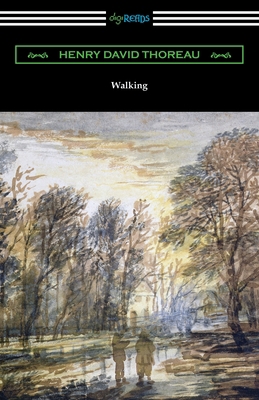
Walking
First delivered as a lecture in 1851, "Walking" is the seminal work on Transcendental philosophy by American author and essayist Henry David Thoreau. Sometimes referred to as "The Wild", it was Thoreau's favorite speech and he gave the lecture several more times over the next...
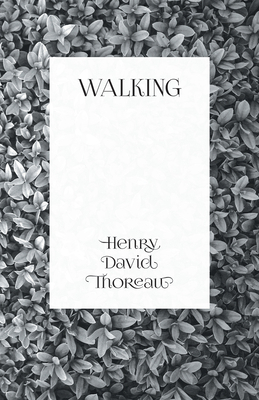
Walking
"Walking" is an essay by Henry David Thoreau based on a lecture originally delivered at the Concord Lyceum on April 23, 1851. Within it, Thoreau carefully explores the important relationship between nature and mankind. Thoreau considered it to be one of his best works, and repeatedly...
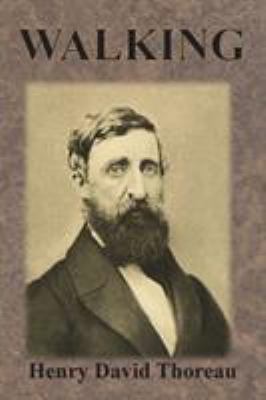
Walking
"I wish to speak a word for Nature, for absolute freedom and wildness, as contrasted with a freedom and culture merely civil--to regard man as an inhabitant, or a part and parcel of Nature, rather than a member of society. I wish to make an extreme statement, if so I may make...
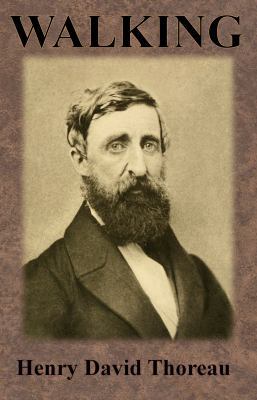
Walking
"I wish to speak a word for Nature, for absolute freedom and wildness, as contrasted with a freedom and culture merely civil--to regard man as an inhabitant, or a part and parcel of Nature, rather than a member of society. I wish to make an extreme statement, if so I may make...
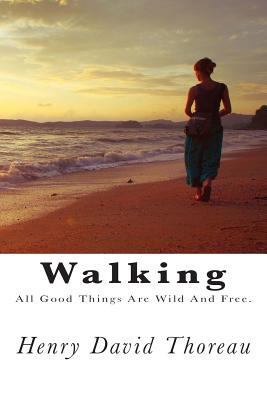
Walking: All Good Things Are Wild and Free.
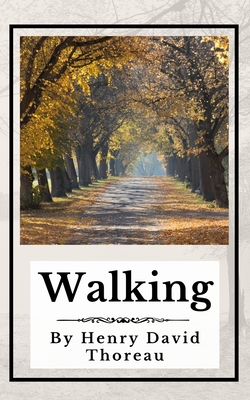
Walking (Annotated): Original 1862 Edition
This Edition of Walking is the Original 1862 Edition and Is Annotated. Henry David Thoreau is very well known for his book, Walden, which was published in 1854. Thoreau was born as David Henry Thoreau in Concord, Massachusetts on July 12, 1817. His parents were John Thoreau,...
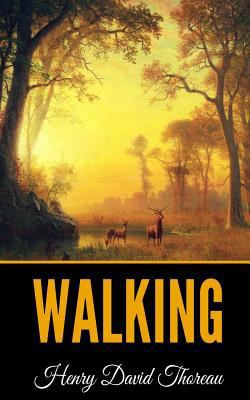
Walking
It is true, we are but faint-hearted crusaders, even the walkers, nowadays, who undertake no persevering, never-ending enterprises. Our expeditions are but tours, and come round again at evening to the old hearthside from which we set out. Half the walk is but retracing our steps...
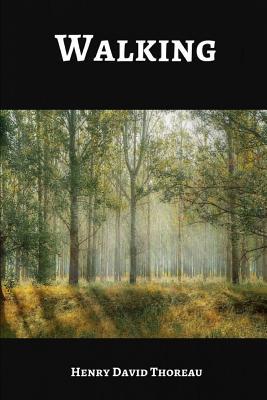
Walking
In Walking, Henry David Thoreau talks about the importance of nature to mankind, and how people cannot survive without nature, physically, mentally, and spiritually, yet we seem to be spending more and more time entrenched by society. For Thoreau walking is a self-reflective...

Walking by Henry David Thoreau
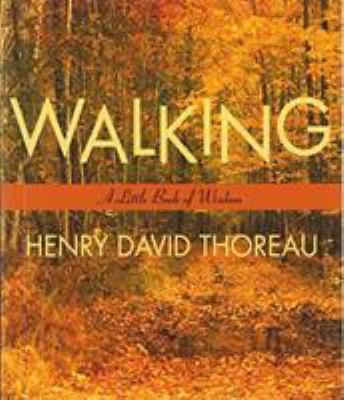
Walking
A meandering ode to the simple act and accomplished art of taking a walk. Profound and humorous, companionable and curmudeonly, Walking, by America's first nature writer, is your personal and portable guide to the activity that, like no other, awakens the senses and the soul...

Walking: By Henry David Thoreau - Illustrated
How is this book unique? Font adjustments & biography included Unabridged (100% Original content) Illustrated About Walking by Henry David Thoreau "I wish to speak a word for Nature, for absolute freedom and wildness..." "Walking" is an essay written by Henry David Thoreau (1817-1862)...
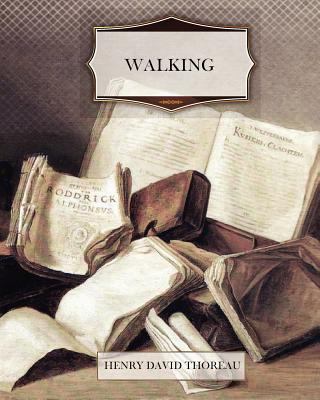
Walking
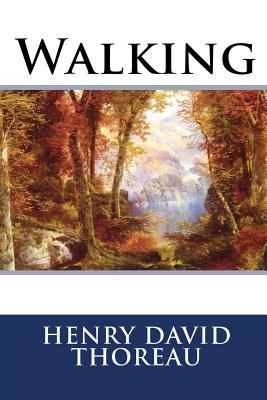
Walking (Annotated)
In Walking, Henry David Thoreau talks about the importance of nature to mankind, and how people cannot survive without nature, physically, mentally, and spiritually, yet we seem to be spending more and more time entrenched by society. For Thoreau walking is a self-reflective...

Walking
Originally given as part of a lecture in 1851, "Walking" was later published posthumously as an essay in the Atlantic Monthly in 1862. Now being a chief text in the environmental movement, Thoreau's "Walking" places man not separate from Nature and Wildness but within it and...
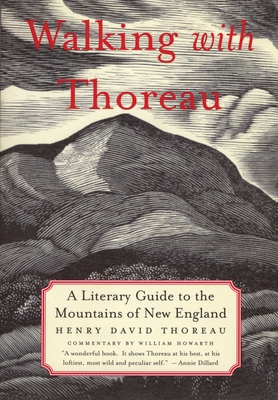
Walking with Thoreau: A Literary Guide to the M...

Walking & Other Essays
This collection of essays includes: Walking, Wild Apples, On the Duty of Civil Disobedience, and A Plea for Captain John Brown.
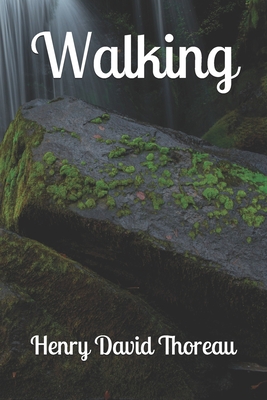
Walking
Originally given as part of a lecture in 1851, "Walking" was later published posthumously as an essay in the Atlantic Monthly in 1862.Now being a chief text in the environmental movement, Thoreau's "Walking" places man not separate from Nature and Wildness but within it and lyrically...
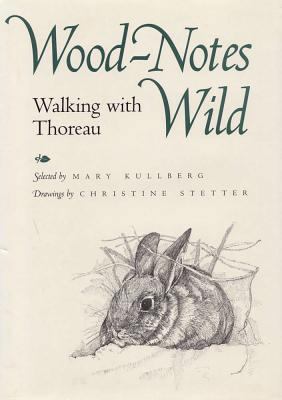
Wood-Notes Wild: Wallking with Thoreau
Henry David Thoreau earned immortality for his eloquent prose in Walden, the masterpiece that resulted from his communing with nature at Walden Pond in Concord, Massachusetts. Less widely known are the journals Thoreau kept for twenty-four years as he walked at...
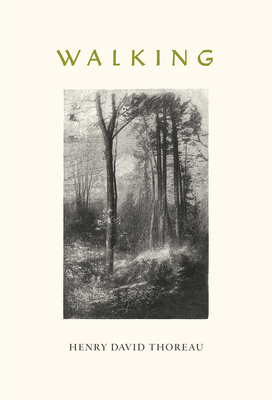
Walking
Stroll Along with Thoreau as he Reveals the Power and Art of Walking In this charming little book, Henry David Thoreau treats his subject as if it were a walk itself. As he wanders, so do his thoughts. Thoreau walked both for exercise of mind and body...



